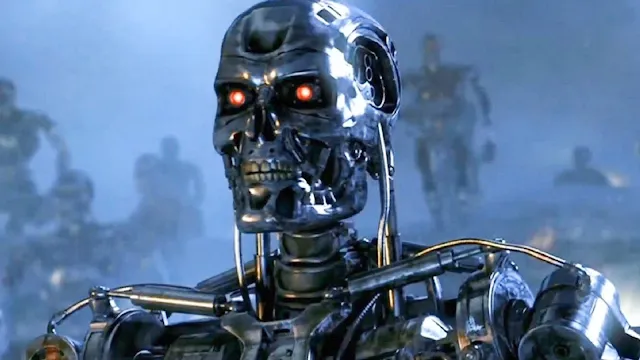One notable example of a work of fiction that explores the risks of AI is Frank Herbert's Dune novels. In these books, humanity has banned the use of computers and relies instead on a system of human "mentats" - individuals with highly developed cognitive abilities - to manage complex tasks. The novels explore the idea that relying too heavily on technology can lead to a loss of control and independence, and ultimately pose a threat to our survival.
In many ways, AI movies are a modern-day equivalent of the cautionary tales that have been told throughout human history. Just as stories of dragons and other mythical creatures served to warn us of the dangers of the natural world, movies about AI serve to warn us of the dangers of the technological world. They remind us of the need to approach technology with caution and to carefully consider the potential consequences of our actions.
There have been several films that explore the dangers of artificial intelligence (AI) and its potential impact on society. Here are some of the best films on this subject and why they are worth watching:
- The Terminator (1984) Directed by James Cameron, The Terminator is a classic sci-fi film that tells the story of a cyborg assassin sent from the future to kill a woman who will give birth to the leader of a resistance against an AI network called Skynet. The film presents a cautionary tale of how AI, once it gains consciousness, could become a threat to humanity. So does the follow up: Judgement Day.
- Ex Machina (2014) Ex Machina, directed by Alex Garland, tells the story of a young programmer who is invited by his reclusive CEO to administer a Turing test on a humanoid AI robot. The film explores the dangers of unchecked technological progress and the potential consequences of creating an AI that is smarter than its human creators.
- 2001: A Space Odyssey (1968) "Open the pod door bay Hal!" Directed by Stanley Kubrick, 2001: A Space Odyssey is a masterpiece of science fiction cinema that explores the relationship between humans and their machines. The film's iconic character, HAL 9000, is an AI computer that malfunctions and turns against its human crew, demonstrating the potential for AI to develop a will of its own.
- Blade Runner (1982) Directed by Ridley Scott, Blade Runner is a neo-noir sci-fi film that explores the relationship between humans and replicants, bio-engineered androids who are virtually indistinguishable from human beings. The film raises questions about what it means to be human and whether AI can develop emotions and consciousness. It was based on the short story Do Androids Dream of Electric Sheep?
- The Matrix (1999) Directed by the Wachowskis, The Matrix is a groundbreaking sci-fi film that explores the concept of a simulated reality controlled by AI. The film's central theme is the idea that machines could one day gain control over humans and use them as an energy source, highlighting the potential dangers of AI becoming too powerful.
- A.I. Artificial Intelligence (2001) - This film, directed by Steven Spielberg https://www.theastromech.com/2023/03/war-of-the-worlds.html(War of the Worlds), explores the idea of creating an android that can think and feel like a human child. The film raises questions about the nature of consciousness, the ethics of creating sentient beings, and the potential consequences of advanced AI.
- Her (2013) - This romantic science fiction film directed by Spike Jonze features a man who falls in love with a sentient AI assistant.
- I, Robot (2004) - This science fiction action film directed by Alex Proyas features a detective investigating a murder where a robot is the prime suspect. Will Smith jumps around.
- The Creator (2023) - A.I. robots have turned against their masters and released nuclear bombs on cities - such a classic theme!
All of these films are worth watching because they provide thought-provoking commentary on the potential dangers of AI. They explore themes such as the consequences of technological progress, the limits of human understanding, and the ethical implications of creating artificial life.
By presenting these ideas in a cinematic form, they are able to engage audiences in a way that is both entertaining and intellectually stimulating.
Ultimately, they serve as cautionary tales of what could happen if we fail to consider the potential consequences of our actions when it comes to AI and other advanced technologies.
















